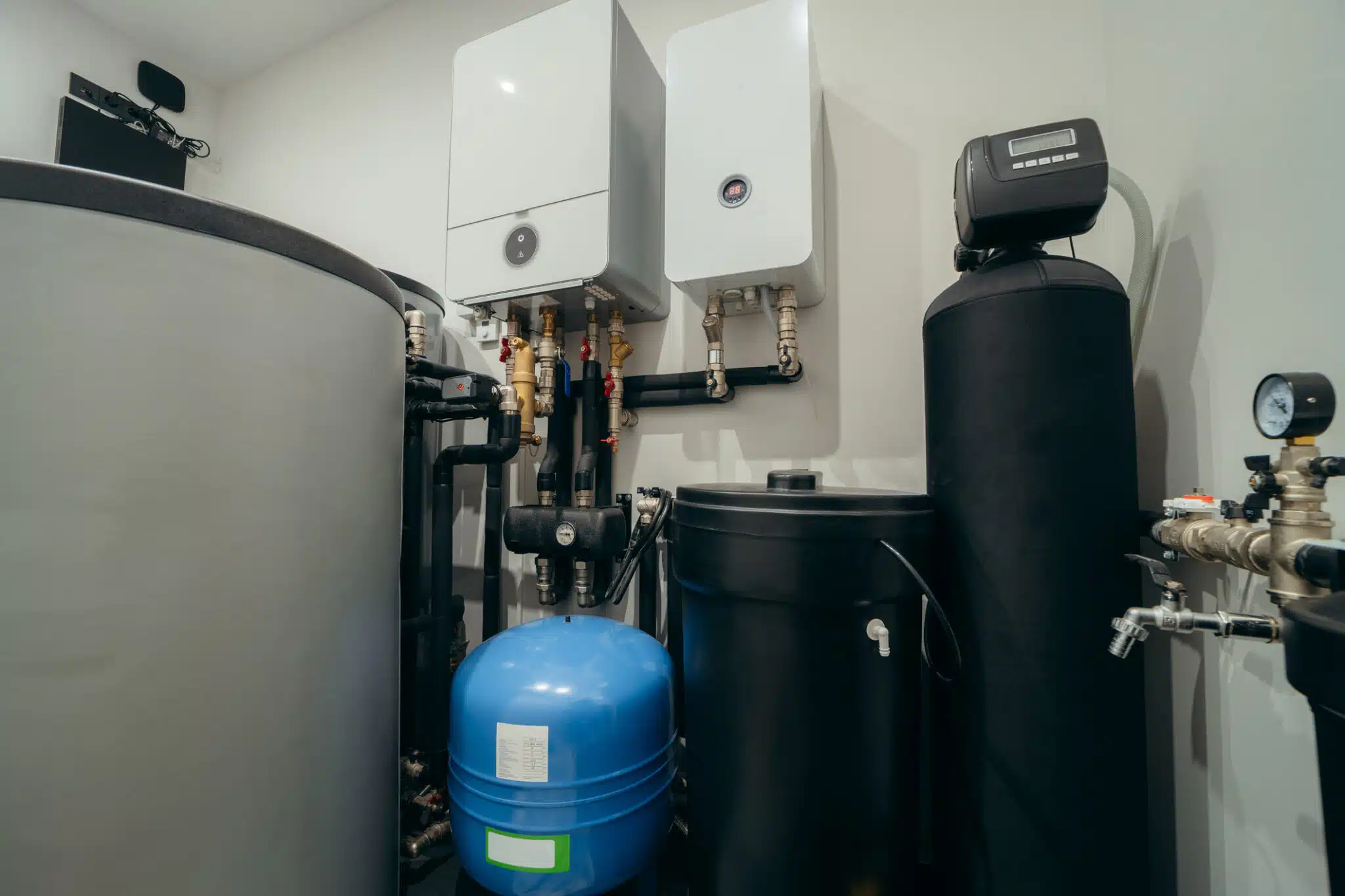In today’s environmentally conscious world, choosing the right water recycling system for your home is more important than ever. With various options on the market, knowing which system best fits your needs can be challenging. Whether you’re in Lancaster, PA, or neighboring cities like York, PA, and Harrisburg, PA, the demand for efficient water recycling is growing. This guide aims to simplify the selection process, focusing on cost, benefits, and installation aspects.
Water recycling systems not only support sustainable living but also offer significant savings on water bills. Identifying the most efficient system involves understanding how different models work and their long-term benefits. From reducing your ecological footprint to ensuring a steady supply of reused water, the right system can make all the difference. It’s crucial to weigh these factors carefully to make an informed decision.
Moreover, the installation of a water recycling system is a key consideration. Some systems may require extensive modifications to your home’s plumbing, while others can be more easily integrated. Residents of Lancaster, York, and Harrisburg have access to professionals who can provide valuable insights and services, ensuring a smooth transition to recycled water use.
Ultimately, the goal is to select a water recycling system that aligns with your environmental goals and budget. By understanding the various systems available, their benefits, and installation requirements, you can make a choice that suits your home best. This guide will walk you through each step, helping you to invest in a system that promotes sustainability and efficiency.
Understanding Water Recycling Systems
Understanding the various types of water recycling systems is the first step toward making an informed decision. These systems range from simple rainwater harvesting setups to advanced greywater recycling units. Each type serves a different purpose, with rainwater systems primarily used for irrigation and greywater systems for toilet flushing and laundry. Knowing what each system offers helps you determine which aligns with your household needs and environmental goals.
When considering a water recycling system, it’s essential to evaluate its efficiency and compatibility with your home. For instance, greywater systems require less treatment than blackwater recycling systems, making them a popular choice for residential use. However, the suitability of a system also depends on your home’s layout and existing plumbing. Residents in York, PA, can benefit from consulting with local experts who understand the specific requirements for installing these systems in the area.
The benefits of installing a water recycling system extend beyond environmental conservation. By reusing water, homeowners can significantly reduce their water bills, contributing to long-term savings. Additionally, these systems can increase property value by demonstrating a commitment to sustainability. This aspect is particularly appealing to environmentally conscious buyers in markets like Harrisburg, PA, where sustainable living is highly valued.
Lastly, the installation process is a critical factor to consider. Some systems might require extensive plumbing work, while others are designed for easier integration. It’s advisable to get a professional assessment to understand the scope of installation and any potential modifications to your home. This step ensures that the chosen water recycling system is installed efficiently and operates effectively, providing peace of mind and supporting your sustainable living goals.

Evaluating the Cost of a Water Recycling System
Evaluating the cost of a water recycling system is crucial for homeowners considering this sustainable investment. Initial expenses can vary widely depending on the system’s complexity and the specific requirements of your home. In York, PA, for instance, local regulations and the type of system chosen can influence the overall cost. Understanding these factors helps ensure you’re prepared for the financial aspect of installing a water recycling system.
Long-term savings are a significant benefit of investing in a water recycling system. By reusing water, you can drastically reduce your monthly water bills, allowing the system to eventually pay for itself. Homeowners in Harrisburg, PA, have observed a noticeable decrease in their water expenses, highlighting the cost-effectiveness of these systems. This makes the investment not only eco-friendly but also financially wise over time.
Additional costs to consider include maintenance and potential upgrades. Regular upkeep ensures your system operates efficiently, preventing costly repairs down the line. Some systems may also allow for future enhancements to increase water recycling capabilities, offering flexibility as your needs or environmental regulations change. These ongoing costs are essential to factor into your budgeting process.
Finally, consulting with a professional can provide a clearer picture of the total investment required. Experts can offer insights into the most cost-effective systems for your home and help estimate installation and maintenance expenses. This step is invaluable for making an informed decision, ensuring you choose a water recycling system that meets your environmental goals and budget.
Benefits of Installing a Water Recycling System
Installing a water recycling system offers numerous benefits, starting with a considerable reduction in water consumption. By reusing water, homeowners in Lancaster, PA, can significantly lower their monthly utility bills. This sustainable choice not only saves money but also conserves precious water resources. As a result, families enjoy the dual advantages of financial savings and contributing to environmental protection.
Another key benefit is the increase in property value. Homes equipped with water recycling systems appeal to eco-conscious buyers, especially in areas like York, PA. This addition demonstrates a commitment to sustainability, making the property more attractive in the real estate market. Consequently, homeowners can expect a favorable return on investment when they decide to sell.
Beyond financial and market value advantages, water recycling systems play a crucial role in reducing the strain on municipal water systems. In cities like Harrisburg, PA, where water conservation is essential, such systems help mitigate the demand on public utilities. This collective effort can lead to more sustainable water management practices across the community, showcasing the power of individual contributions to a larger cause.
Lastly, the personal satisfaction that comes from adopting an eco-friendly lifestyle cannot be understated. Homeowners who install water recycling systems join a growing movement towards sustainability. They set a positive example for neighbors and the community, inspiring others to consider environmentally responsible choices. This sense of community and environmental stewardship enriches the quality of life, making the investment in a water recycling system a rewarding decision on multiple levels.
Types of Water Recycling Systems for Homes
Choosing the right water recycling system for your home involves considering your specific needs and preferences. Systems vary from basic setups that capture and reuse rainwater for gardening to more sophisticated greywater systems designed for non-potable household use. Homeowners in York, PA, find that evaluating their daily water usage helps pinpoint the system that best matches their lifestyle, ensuring they choose a solution that maximizes both environmental and financial benefits.
Installation requirements are another critical factor to consider. Some systems might need significant plumbing updates, while others can be integrated with minimal changes. For residents in Lancaster, PA, consulting with a professional can provide clarity on what each system demands in terms of installation, helping to avoid unexpected challenges and expenses. This step is essential for ensuring the chosen system is compatible with your home’s existing infrastructure.
Maintenance considerations play a pivotal role in the selection process. All water recycling systems require some level of upkeep to maintain efficiency and longevity. Homeowners should assess the maintenance needs of each system, including regular cleaning and periodic component replacement. Understanding these requirements upfront can help in selecting a system that fits your willingness and ability to perform ongoing maintenance tasks.
Finally, regulatory compliance is a key consideration. Local regulations in Harrisburg, PA, may dictate the types of water recycling systems that are permissible. Homeowners must ensure their chosen system meets all local health and safety standards to avoid legal issues. Researching these regulations or consulting with experts can guide you toward systems that are not only efficient and cost-effective but also fully compliant with local codes, ensuring a smooth and lawful installation process.
Key Features to Look for in a Water Recycling System
When selecting a water recycling system, it’s essential to consider the technology behind it. Look for systems that offer advanced filtration and purification processes. These features ensure that the recycled water is safe and clean for its intended use. Advanced technology can also mean more efficient water usage, a critical factor for homeowners in York, PA, aiming for sustainability.
Another key feature to prioritize is the system’s capacity to meet your household’s water needs. A system that’s too small won’t provide enough recycled water, while one that’s too large could be unnecessarily expensive. Assessing your daily water usage helps in choosing a system that’s just the right size. This consideration is especially important in Harrisburg, PA, where water conservation efforts are highly encouraged.
Durability is also a crucial factor in selecting a water recycling system. Systems made from high-quality materials last longer and require less maintenance, offering better value over time. Look for systems with strong warranties and good customer reviews, as these can indicate reliability and customer satisfaction. Durable systems reduce the need for frequent replacements, making them a wise investment.
Lastly, consider the ease of use and maintenance of the system. A user-friendly interface and clear maintenance guidelines can make managing your water recycling system much simpler. Systems that are easy to monitor and maintain ensure that you can keep them running efficiently without needing constant professional help. This feature is particularly appealing for busy homeowners who value convenience alongside environmental benefits.
The Installation Process of a Water Recycling System
Installing a water recycling system in your home starts with choosing the right professionals for the job. In York, PA, it’s vital to select a team experienced in eco-friendly installations. They will assess your home’s layout and recommend the best system that meets your needs. This initial step ensures that the installation process goes smoothly and efficiently.
Next, the installation team will prepare your home for the new system. This might involve minor modifications to your existing plumbing to accommodate the water recycling system. Homeowners in Harrisburg, PA, appreciate this tailored approach, as it minimizes disruptions. Careful planning at this stage helps avoid any unexpected issues during the installation.
Once the groundwork is laid, the actual installation of the water recycling system can begin. The team will install the necessary equipment, ensuring it integrates seamlessly with your home’s plumbing. This process is usually completed within a day, depending on the complexity of the system. Quick and efficient installation means you can start enjoying the benefits of recycled water sooner.
Finally, after the system is in place, the installation team will guide you through its operation and maintenance. Learning how to use and take care of your water recycling system is key to its longevity. Regular maintenance checks are recommended to keep the system running smoothly. With proper care, your water recycling system will provide sustainable water solutions for years to come.
Maintenance and Care for Your Water Recycling System
Maintaining your water recycling system is crucial for ensuring it operates efficiently over time. Regular checks can prevent minor issues from becoming major problems, saving you money and extending the system’s lifespan. Homeowners in York, PA, find that setting a maintenance schedule helps keep their systems in top condition. This proactive approach guarantees the longevity and performance of your investment.
Cleaning and replacing filters are key aspects of water recycling system care. These tasks ensure that water is properly treated and safe for reuse in your home. It’s important to follow the manufacturer’s guidelines for maintenance to avoid any operational issues. In Harrisburg, PA, residents appreciate the peace of mind that comes from knowing their system functions effectively, thanks to regular upkeep.
Occasionally, professional inspections may be necessary to assess the system’s health. Experts can identify potential problems and recommend solutions before they escalate. This service is invaluable for homeowners who want to ensure their system remains in optimal condition. By investing in professional maintenance, you safeguard your system against unforeseen failures.
Lastly, understanding your system’s specific needs is essential for effective maintenance. Different systems may require unique care, so familiarizing yourself with your setup is crucial. This knowledge empowers homeowners to take charge of their water recycling system’s care, ensuring it provides efficient service for years to come. Regular maintenance not only supports sustainability but also contributes to the system’s reliability and effectiveness.

Frequently Asked Questions
What is a water recycling system?
A water recycling system reuses water from various household activities, like washing and bathing. It treats and cleans this water for non-potable uses, such as irrigation and toilet flushing. This process not only saves valuable water resources but also reduces the demand on the municipal supply. By installing one, homeowners can significantly cut down on their water bills and contribute to environmental conservation.
How does a water recycling system work?
A water recycling system collects used water from your home, such as from showers and sinks. It then cleans this water through a series of filters and treatments. Once purified, the water is ready for reuse in tasks like watering gardens or flushing toilets. This cycle greatly reduces the need for fresh water and lowers household water usage.
What factors to consider in a water recycling system?
When choosing a water recycling system, consider its size and capacity to ensure it meets your household needs. Look into the system’s efficiency and how well it purifies water for reuse. It’s important to check installation requirements and whether your home setup can accommodate it. Lastly, think about ongoing maintenance costs and the system’s durability to guarantee long-term savings and performance.
How to maintain a water recycling system?
Maintaining a water recycling system is straightforward and essential for its efficiency. Regularly check filters and replace them as needed to ensure clean water. Schedule annual inspections with a professional to catch any potential issues early. By doing so, you can extend the system’s lifespan and keep it running smoothly.
What are the benefits of a water recycling system?
Installing a water recycling system offers several advantages. It significantly reduces water bills by limiting the need for fresh water. This system also benefits the environment by decreasing water waste. Homeowners enjoy the peace of mind that comes with contributing to sustainable living. Additionally, it increases property value, making it an attractive feature for future buyers.









